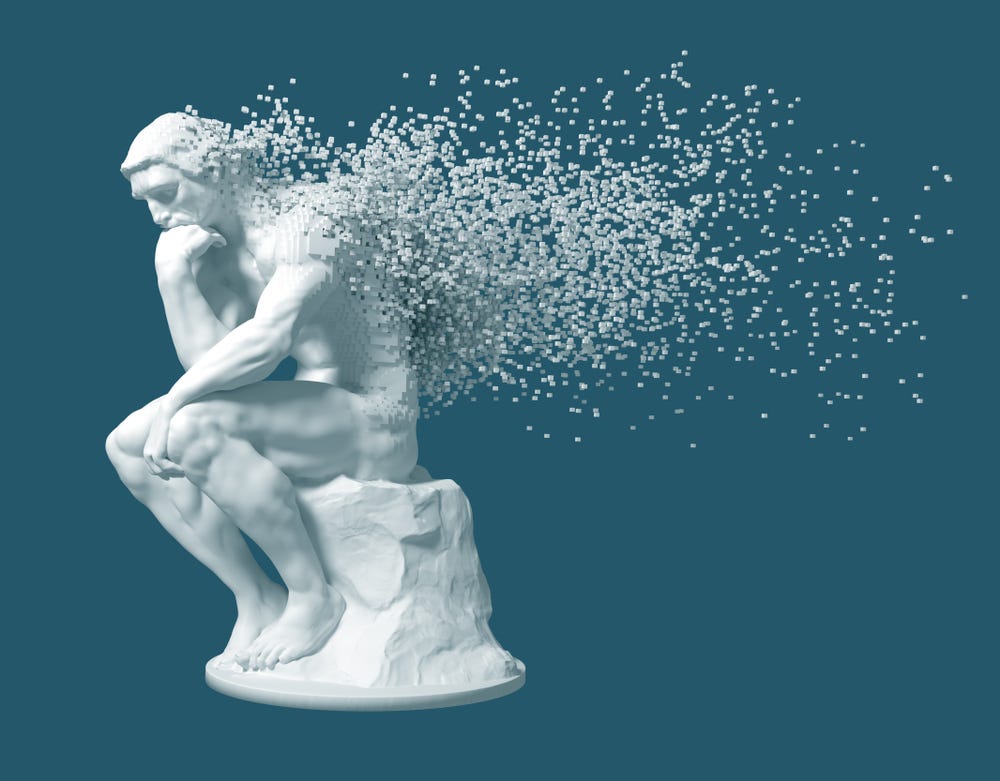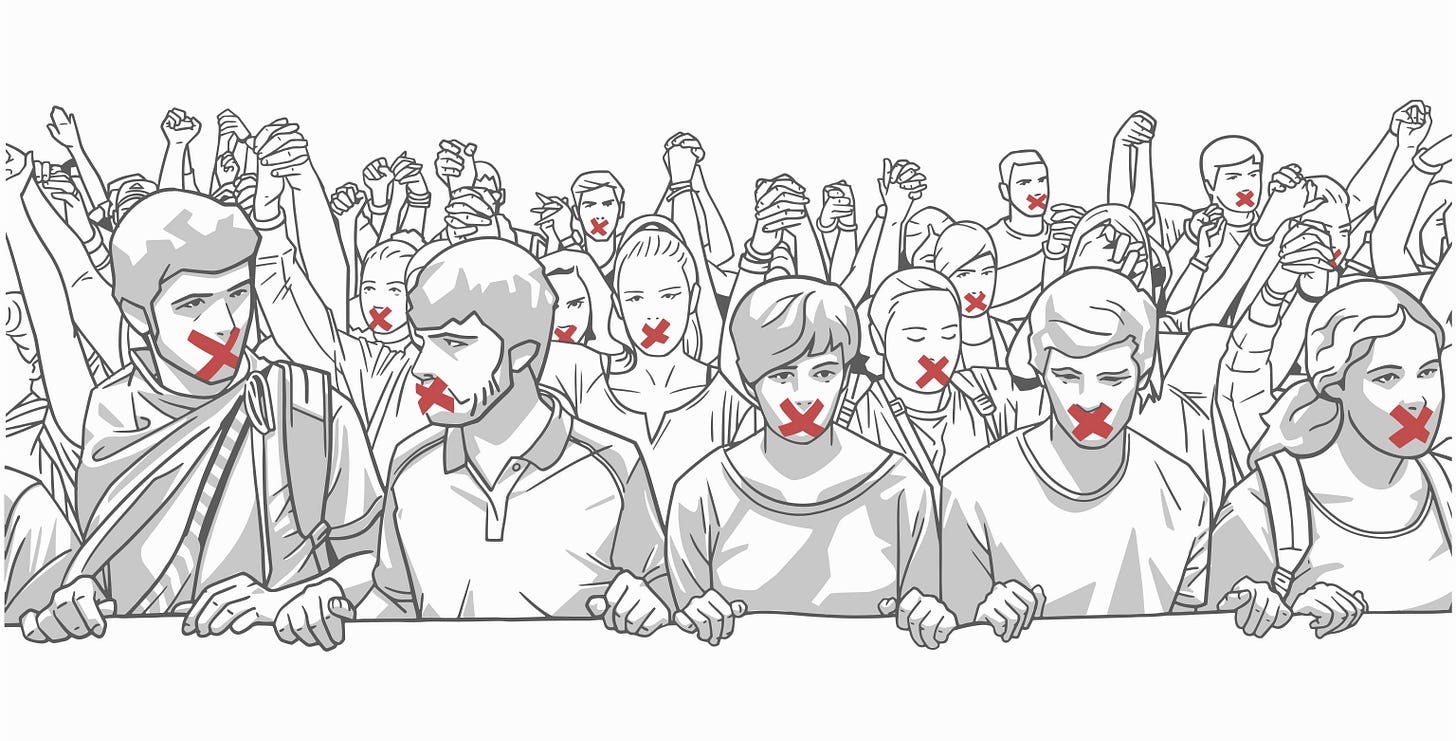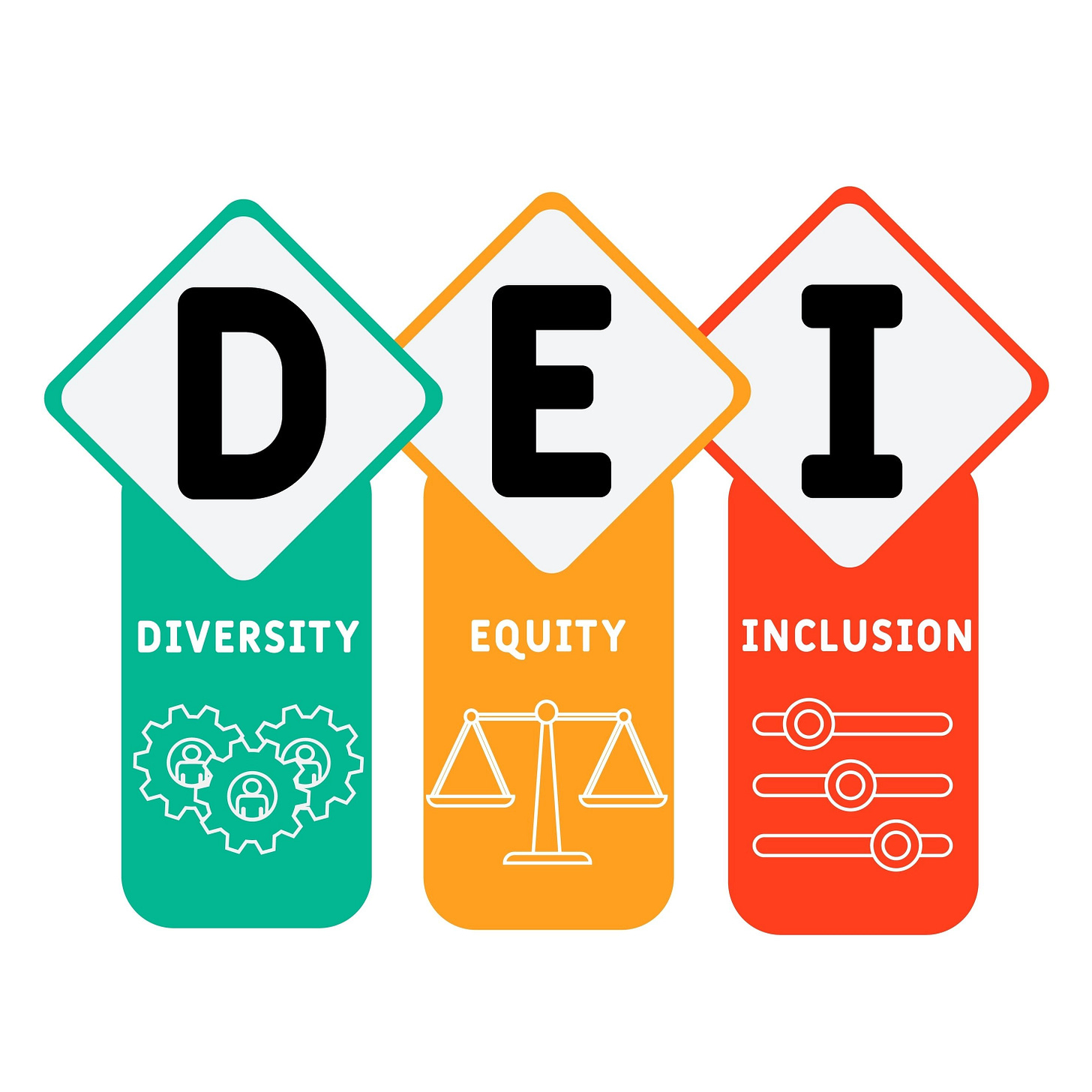E-Pluribus | February 10, 2023
The crumbling foundations of academia; is free speech a threat? a NYT reporter seems to think so; and how DEI undermines academic freedom.
A round-up of the latest and best writing and musings on the rise of illiberalism in the public discourse:
Mark Goldblatt: The Approaching Disintegration of Academia
Mark Goldblatt teaches at the Fashion Institute of Technology, part of the State University of New York system. Goldblatt writes at Quillette about the assault on objectivity and argues that the survival of academia depends on objectivity winning the battle.
After expressing my general admiration for the [LGBT-themed sociology] course, I raised my misgiving in the following way (and this is nearly an exact quote): “We need to keep in mind that we’re a state university. Our mission is to pursue, ascertain, and disseminate objective truth, and to equip our students to do the same. Given that mission, I don’t think we can list a learning outcome that requires students’ assent on a matter of personal morality. The other learning outcomes are fine. You don’t need that one, so I’d just cut it.” My colleague was fresh out of graduate school and not yet tenured, which (theoretically) put her in a vulnerable position. Nevertheless, she became apoplectic; so angry, in fact, that she had difficulty getting out her first sentence. “I can’t believe people still think that way!” she spluttered. “Queer Theory has deconstructed objectivity!”
Her words hung in the air as I glanced around the room. Not a single faculty member, not even those in math or sciences, seemed fazed by her categorical statement. Since I was a tenured professor, I was reluctant to debate an untenured colleague during a school meeting. So, I let the matter drop. The course was approved without revision by the School of Liberal Arts, and went on to gain approval by the curriculum committee. And that is how my college got into the business of winning converts.
That moment haunts me as I begin my final semester before retirement—not only because faculty on the state payroll have deliberately crossed the critical line from pursuing the truth to professing The Way, but also because the Enlightenment sensibility that finds such mission creep objectionable seems to be passing from the scene. The “deconstructive turn”—as the critic Christopher Norris once called it—is nothing more than a verbal sleight-of-hand. It invites us to tease out secondary and tertiary senses of words to show how a text contradicts what it seems to be saying, free-associate our way to philosophical banalities or outright non-sequiturs, and finally glaze the mishmash with a layer of impenetrable jargon. If a reader is foolish enough to attempt to make sense of what is being said, he’ll get bogged down before he can figure out nothing is being said at all.
Read it all here.
Jacob Sullum: The New York Times Warns That Freedom of Speech 'Threatens Public Health' and 'Democracy Itself'
What constitutions a First Amendment violation by the government is the subject of fierce debate in the current war on mis- and dis-information. A recent report from The New York Times seems to come down on the side of the government, writes Jacob Sullum at Reason, and the alleged dangers to public health and “democracy itself” are the justifications - Sullum is not convinced.
Are federal officials violating the First Amendment when they pressure social media companies to suppress "misinformation"? That is the question posed by a federal lawsuit that the attorneys general of Missouri and Louisiana filed last May.
New York Times reporter Steven Lee Myers warns that the lawsuit "could disrupt the Biden administration's already struggling efforts to combat disinformation." He worries that "the First Amendment has become, for better or worse, a barrier to virtually any government efforts to stifle a problem that, in the case of a pandemic, threatens public health and, in the case of the integrity of elections, even democracy itself." As Myers frames the issue, freedom of speech is a threat to "public health" and "even democracy itself."
There is no denying that when people are free to express their opinions, no matter how misguided, ill-informed, or hateful, some of them will say things that are misleading, demonstrably false, or divisive. The First Amendment nevertheless guarantees their right to say those things, based on the premise that the dangers posed by unfettered speech are preferable to the dangers posed by government attempts to regulate speech in what it perceives as the public interest.
Myers may disagree with that calculation or recoil at its implications. But the First Amendment clearly bars the government from banning speech it views as hazardous to public health or democracy. . .
Read it all.
Amna Khalid and Jeffrey Aaron Snyder: Yes, DEI Can Erode Academic Freedom. Let’s Not Pretend Otherwise.
Advocates of “diversity, equity and inclusion” often assert that DEI is a key to increasing true academic freedom for all, but Amna Khalid and Jeffrey Aaron Snyder, both associate professor at Carleton College, beg to differ. Rather, the system that Khalid and Snyder call “DEI Inc.” chills academic freedom in an attempt to avoid discomfort and offense and students (annd teachers) are worse off for it.
The assertion that inclusion and academic freedom are not in tension is an article of faith for many of those dedicated to promoting campus inclusion. In 2018, the Harvard University Task Force on Inclusion and Belonging released an 82-page report stating that the “values of academic freedom and inclusion and belonging provide each other with synergistic and mutual reinforcement.” According to this report, the two should not be conceived of as “distinct values that must be accommodated to each other” or, worse still, as “antagonistic goals.” [. . .]
To safeguard high-quality teaching that powerfully and accurately communicates our disciplines and fields, academic freedom must be vigorously defended. Students, DEI administrators and other campus stakeholders should understand that professors have the right to decide what and how to teach based on their academic expertise and their pedagogical goals. They should also know that there is no academic freedom without academic responsibility. Academic freedom is not a license to mouth off or teach whatever material suits our fancy. Moreover, when thorny issues arise pertaining to classroom instruction, we have a responsibility to listen to students’ concerns and take them seriously. This does not mean, however, that students should be able to dictate the curriculum.
The Hamline case should serve as a wake-up call for anyone who cares about classroom teaching, critical thinking, and the future of higher education. Some may see this controversy as an exception or an outlier. It’s not. It’s a bellwether of how DEI Inc. is eroding academic freedom. Let’s not forget it took an outpouring of sustained, high-publicity resistance, not to mention a lawsuit, for Hamline to soften its charge of “Islamophobia” against Prater and affirm its commitment to academic freedom.
Read the whole thing.
Around Twitter
Race-based hiring, it seems, continues apace at certain institutions:
Will there be a reckoning for the media who suppressed health information about now-elected Senator John Fetterman?
And finally, this analogy might hold up better if it took a year for the tow truck to show up:










